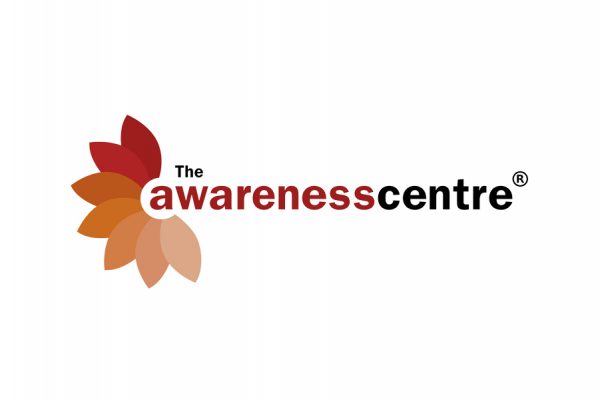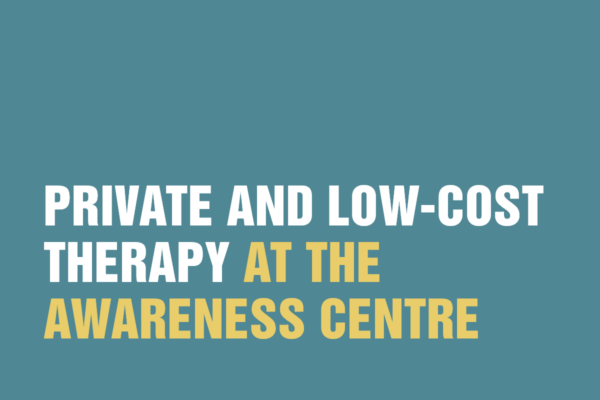Originally, when I took to writing on this blog, I was asked me to write about my experience as a placement/trainee counsellor – I have slightly digressed in my other blogs, so I thought it was about time I obeyed the boss and gave some attention to this area. So here I am writing in my capacity as a placement counsellor, and, someone who has just recently finished my training, well done me!
At present, I am working on placement for the NHS with the Awareness Centre, and also in the beginning stages of my career as a private therapist (also based at the Awareness Centre).
Since I have finished my training, I must admit that I have missed my training group. There is something about being ‘held’ in a group that can make a big difference to the work. Part of me has felt a little uncontained, and it has certainly been a different experience since July. Because of this, I am giving serious consideration into joining either group therapy, or peer supervision. I am lucky at the moment to still have group supervision at the Awareness Centre, but with the ending of this imminent (I’ll talk about this in a bit), the importance of feeling part of something where there is support for me, seems paramount. I am lucky to have some good ‘therapist’ friends who also play their part in this, and having a tendency to sometimes be quite a solitary person (I like space and enjoy my own company), I want to stay faithful to checking in on friends and colleagues when I can. Having some kind of social activity and appreciating the people in your life that you love, is actually something I really recommend as a therapist: after all, holding your own emotion, and holding client material really can sometimes take its toll.
For this blog, I wanted to consider, as a practitioner just starting out, the experience of counselling and the therapy space for me. I decided to make documentary-like notes on myself to share with you (unique species that I am), and here’s a starting list of the behaviour I have observed in myself
- Mental preparation prior to sessions.
- Ensuring continuity for my clients week on week.
- Checking my own comfort levels in the space (as well as the clients).
- Ritualistic behaviour.
Let’s start with point 1. Before I start counselling, I like peace. Too much loudness, madness, confusion, or too much of my own ‘stuff’ rearing its ugly head, is not good for my much needed ‘zen-like’ state. Much of this is to do with making myself entirely available and open for my clients – maybe as Bion described it; like an empty container. When I am downstairs waiting for clients, some of my colleagues at TAC have been known to comment on this, with remarks ranging from ‘are you alright, you looked troubled’ to ‘are you meditating?’ – no worries colleagues, I’m just doing my best Zen Master impression, surely that’s obvious?! I think being mentally prepared for your clients is a given. If you work with transference (which I do), it is good to be as open as possible each and every week so you can even more pick up on subtle changes that you embody, which may, or may not, represent some of the client’s process.
Point 2 could cover a lot of aspects. Continuity creates safety. The trust that is built in the counselling space is an utmost priority for me, as I am sure it is for most counsellors. If things can be smoothly continuous each week, it can be like a client coming home: by that I mean, a safe space to work in.
Furthermore, points 2, 3, and 4 all partly relate to the space I work in. What a difference a chair can make! Feeling physically comfy can help practically with long days, or a number of clients in a row, but also where potentially difficult emotional stuff comes up, the more physically comfortable you and your clients can be, the better. This extends to all kinds of things such as how you set out the room, the general ambience, the room temperature, in addition to furniture. Again, continuity with all of this can help. The therapeutic alliance grows in this space, and I believe that the relationship between both bodies can flourish in the same environment.
So what do I mean by point 4?! I recently noticed my penchant for using the same cushions. I was asking myself what difference a cushion with a pretty pattern could really make to my practice, and with the exception of an ever so slight difference in the texture of my favourite cushions, I think I might resign myself to a touch of superstitious ritualistic behaviour. I feel relaxed and confident with my cushion, which maybe helps me ‘perform’ better so to speak, as it creates a sort of relaxation within. And to embark on rituals it is not entirely surprising to me, as I am that anal person who not only enjoys alphabetising but also sectionalising my book collection at home. Athletes say that ritualistic habits can help us visualise times when we felt successful or confident, and maybe both the books and the cushion resemble or resonate with some part of who I am. On the other hand, I am not going to shirk away from the point that I also think, peculiar habits, weirdness; we all have it (..at least I hope it’s not just me). Accepting some of our ‘perceivably’ negative qualities as counsellors (and people) is, I think, important. We expect our clients to be honest and holistic, but if we cannot, then it is kind of a lost cause. In fact I was telling my supervisor the other week about the realisation of one of my “negative” qualities, but that acceptance of it felt strangely cathartic. My supervisor made the point that what one may view as a negative quality, can, from a different perspective, be a positive quality – depending on your point of view, or the activity.
There we have it. I read this back and thought how odd for me to write about the simple process of the lead up to client’s sessions. But on reflection I value this, and I can see how week on week, my own process is of great importance to the work. Maybe as therapists sometimes, even when we have our best intentions at heart, a kind of’ run of the mill’ attitude can set in – especially if it is our only day job. Taking time to breathe, appreciate and be aware of ourselves before seeing clients, can enable us as therapists to do our best work from that place of real being.
So I eluded earlier that I am leaving the NHS placement at TAC, ahhh, sad, but true. It does feel strange because I have had such a good experience both in the placement, and also with such a diverse range of clients. However, I also felt confident in my decision for it to be the right time, so I have mourned the ending and forward I go. I believe some of my next reflections will be on my experience of differences/similarities between placement work and private work. I am already beginning to mull over this.
So as I am finishing this, I have taken a look at my clinical hours, which currently lie at 327. BACP accreditation is 450 hours, so the next blogs I write on my experience as a counsellor, will be as ‘a counsellor working towards accreditation’. Is anyone else at a similar stage to me? It would be great to hear your comments about your own experiences, which you can duly leave below (go on, someone must be tempted……).







